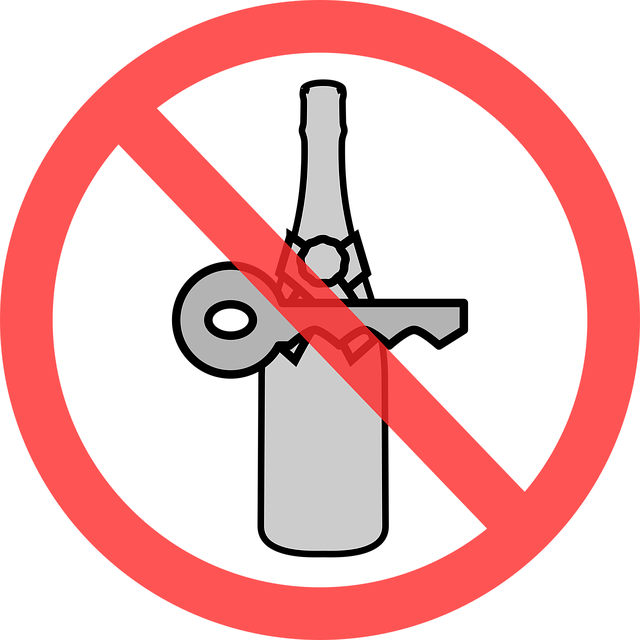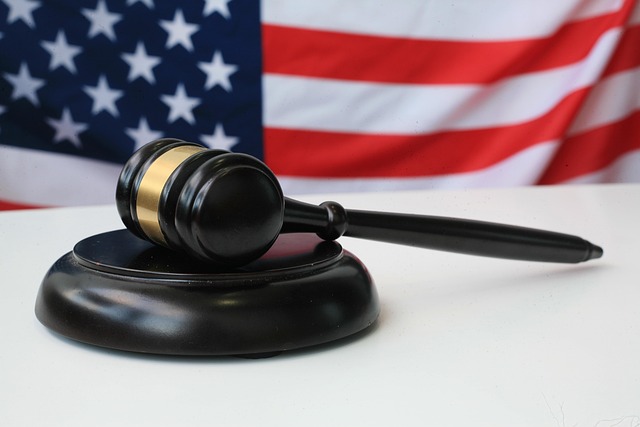Stricter DUI laws target commercial drivers to ensure safe roads, with tech solutions like breathalyzer devices, sensors, and real-time monitoring playing a pivotal role in preventing impaired driving. These innovations not only safeguard highways but also aid legal defenses by providing data on driver behavior. Advanced systems use AI and cameras to detect fatigue or intoxication, while apps offer portable sobriety testing. GPS tracking and blood alcohol level sensors further mitigate risks, enhancing safety for commercial drivers who face demanding schedules. Embracing these tech solutions is vital for lawyers specializing in Commercial Driver DUI Defense, offering efficient strategies and favorable outcomes.
In the realm of commercial transportation, a Commercial Driver DUI (Driving Under the Influence) can have severe consequences. Understanding the unique legal landscape and employing innovative tech solutions are crucial steps in defending against these charges. This article explores various strategies, from advanced alcohol detection systems to GPS monitoring and mobile apps, aiming to prevent impaired driving among commercial drivers. Discover how technology is revolutionizing DUI defense with real-time monitoring and successful case studies, providing a safer transportation network.
- Understanding Commercial Driver DUI Laws and Regulations
- The Role of Technology in Preventing Impaired Driving
- Advanced Alcohol Detection Systems for Commercial Vehicles
- GPS Tracking and Real-Time Monitoring: Keeping Drivers Safe
- Mobile Apps for Responsible Driving Behavior
- Case Studies: Successful Tech Implementations in DUI Defense
Understanding Commercial Driver DUI Laws and Regulations

Commercial drivers face unique challenges when it comes to DUI (driving under the influence) laws and regulations due to their critical role in transporting goods and people. Understanding these rules is paramount, not just for legal compliance but also for public safety. The primary focus of commercial driver DUI laws is to ensure that those operating heavy vehicles are doing so responsibly and are not impaired by alcohol or drugs.
Tech solutions for impaired driving have emerged as a significant tool in this effort. Advanced technology like breathalyzer devices, vehicle-mounted sensors, and real-time monitoring systems help identify and prevent drivers under the influence from taking the wheel. These innovations not only assist in maintaining safety but also provide robust data that can aid in legal defense strategies for commercial drivers accused of DUI.
The Role of Technology in Preventing Impaired Driving

In the ongoing battle against impaired driving, technology is emerging as a powerful ally. Modern innovations offer a range of solutions to prevent and mitigate this issue, especially among commercial drivers. Advanced vehicle systems are now equipped with tech solutions for impaired driving, such as driver monitoring systems that use cameras and sensors to detect signs of fatigue or impairment in real time. These systems can alert drivers and even take corrective actions if needed.
Additionally, data analytics plays a significant role. By analyzing driving patterns and behavior, AI-powered algorithms can identify unusual tendencies indicative of intoxication, enabling early interventions. Furthermore, apps and devices designed for sobriety testing provide portable tech solutions, allowing drivers to verify their fitness to drive at any time. These technological advancements are crucial in creating a safer transportation environment, particularly for commercial drivers who often face longer hours and higher pressure to deliver.
Advanced Alcohol Detection Systems for Commercial Vehicles

Advanced Alcohol Detection Systems have emerged as a game-changer in the realm of commercial vehicle safety, offering innovative tech solutions for impaired driving. These cutting-edge systems employ sophisticated technology to detect alcohol levels in drivers, significantly enhancing road safety measures. By integrating these devices into commercial fleets, companies can proactively mitigate risks associated with drunk driving.
One such tech solution involves the use of breath analysis sensors that are seamlessly integrated into vehicle dashboards. These sensors actively monitor driver breath for ethanol content, immediately flagging any trace amounts indicative of intoxication. Additionally, some systems employ real-time data analytics to track driver behavior patterns, further refining detection accuracy. This proactive approach not only protects public safety but also ensures compliance with stringent regulations governing commercial transportation industries.
GPS Tracking and Real-Time Monitoring: Keeping Drivers Safe

In the realm of Commercial Driver DUI Defense, tech solutions like GPS tracking and real-time monitoring play a pivotal role in keeping drivers safe. These innovative tools act as vigilant sentinels, constantly surveillance vehicle movements, and alerting authorities or supervisors in case of suspicious behavior or potential impairment. By integrating these tech solutions for impaired driving, companies can foster a culture of responsible driving and mitigate risks associated with DUI incidents.
GPS tracking provides accurate data on driver locations, routes taken, and even idle times. This information is crucial not just for safety but also for compliance purposes. Real-time monitoring systems go a step further by incorporating alcohol sensors that detect blood alcohol levels. Should these levels exceed legal limits, the system instantly alerts supervisors, enabling prompt intervention and ensuring the well-being of both drivers and other road users. These tech solutions represent a significant advancement in preventing impaired driving among commercial vehicle operators.
Mobile Apps for Responsible Driving Behavior

In today’s digital era, tech solutions for impaired driving are becoming increasingly accessible through mobile apps designed to promote responsible behavior. These innovative tools offer a range of features that assist drivers in making safer choices while on the road. Some popular apps use GPS tracking and real-time data to monitor driving patterns, alerting users if their behavior indicates potential impairment. Others provide reminders to take breaks, hydrate, and avoid alcohol before or during driving shifts. By leveraging these tech solutions for impaired driving, commercial drivers can maintain safety standards and avoid the legal consequences of DUI (Driving Under the Influence).
Additionally, many apps integrate with in-vehicle systems to enhance overall driving experience and safety. They may include features like hands-free calling, voice-activated navigation, and advanced driver assistance systems (ADAS) that help detect and mitigate potential hazards. By adopting these mobile apps, commercial drivers can demonstrate a commitment to responsible driving practices, thereby strengthening their defense against DUI charges if faced with any legal issues related to impaired driving.
Case Studies: Successful Tech Implementations in DUI Defense

In the realm of Commercial Driver DUI Defense, tech solutions for impaired driving have emerged as game-changers. Case studies illustrate successful implementations where innovative tools and platforms have revolutionized navigation and evidence collection. For instance, advanced GPS tracking devices equipped with real-time data analytics help lawyers pinpoint exact locations and times, providing crucial context in defense strategies.
Additionally, digital record-keeping systems streamline the documentation process, ensuring accuracy and minimizing human error. These tech solutions for impaired driving not only enhance efficiency but also offer robust defenses by presenting organized, verifiable evidence. As the legal landscape evolves, embracing these technological advancements is vital for commercial driver attorneys to stay ahead in their cases and secure favorable outcomes.
In conclusion, the evolving landscape of commercial driver DUI defense is characterized by innovative tech solutions for impaired driving. From advanced alcohol detection systems and GPS tracking to mobile apps promoting responsible behavior, these technologies are reshaping safety standards and regulatory frameworks. As we look ahead, continued integration of these cutting-edge tools holds immense potential to mitigate risks, enhance accountability, and ultimately save lives on our roads.






